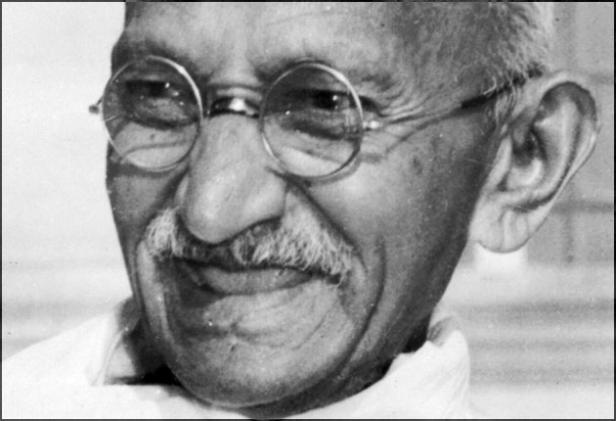I keep on getting irritated by a commonly held view that India does not do charity and philanthropy and I received an email to this effect which made me write this response.
Did you know that India leads in philanthropy amongst developing nations? For example, a recent study by Bain found that we are double that of Brazil and six times that of China? That we give 1 rupee out of every 10 rupees earned? Long way to go before we catch up to developed nations, but hey, we are doing well and we are on the right path.
Since you had to have the obligatory dig at Hinduism, here's something that you might find of interest.
Lokeshwarananda, S. (1968) Charity and charitable services, Encyclopaedia of Social Work in India, vol. I, Planning Commission, Government of India, New Delhi.
Ranganathananda, S. (1968) Philosophy of social work: traditional, Encyclopaedia of Social Work in India, vol. II, Planning Commission, Government of India.
Do suggest you might want to read up on a good solid survey of the charitable and philanthropic historical background within Hinduism. Also covered are the Buddhist, Jain, Sikh and of course Islam contributions going back to ancient times.
You might want to read Pushpa Sundar's book on charity, Beyond Business: From Merchant Charity to Corporate Citizenship. You will see how the concept of corporatism within India, ranging back very many centuries, has always had a very big CSR element to it, much much before this was a twinkle in the eyes of the west. It wasn’t and still isn't captured properly because the epistemological frameworks (such as the joint family, common goods, village based properties, etc.) hid a lot of social work and charity.
If you want more details on what is happening in the country, check out the Directory of Indian Donor Organisations or the Guidebook on Indian scholarships. You can also review the Profile 300: Selected Voluntary Organisations in India by Murray Culshaw to have an idea of the immense range of social and voluntary work being done by Indians in a bewildering variety of areas, people, funding levels, etc.
I need not tell you the sterling work done by the Parsi Foundations as that's quite visible to everybody, but other foundations such as the Birla Foundation, the Rashtriya Gramin Vikas Nidhi, the Bombay Community Public Trust, and and and have a very long history and have been highly active in this area for many decades if not centuries.
Also something that you need to consider is the concept of company towns ranging from the Reliance's Jamnagar to Tata's Jamshedpur etc.
Then there is the concept of establishing religious institutions like Temples which would be philanthropic institutions in their own right with schools, hospitals, hospices and social work institutions in the villages, towns and cities right down the ages. By and large, these were constructed with corporate or zamindari or merchant or trading money. We end up looking at the big royal temples and forget that the vast majority of smaller temples in the smaller towns and villages were funded locally. The Hindu & Jain Seths and merchants would build wells, temples, rest houses. They would sponsor festivals and establish centres for Sanskrit or religious learning. Before you say that this was religious giving, remember that temples functioned as a crucial economic intermediary for India, they would have liquidity and would frequently loan monies to merchants, extend credit and help in the local economy. Corporate funded temples (usually through agricultural land, mela's, markets or entire villages deeded to the temple) would help livestock breeders, animal husbandry, artisans, long distance traders and creation of agricultural surplus.
Then comes the concept of guilds which was also hugely linked to philanthropy and charity. When a member of a guild would fall ill or go bankrupt or have commercial issues, they would get funded socially. Establishment of training schools or allowing internships/training was more evidence of social work and corporate philanthropy. Much research has been done in Gujarat, Maharashtra and in certain locations in South India (like in the Sari business) on this issue.
This kind of social work did not just work towards humans, but there are a significant number of recorded charitable donations for establishing hospices for sick and wounded animals. Did you know that there is recorded history that Hindu seths actually gave tons of money in the early 17th century to the Mughal Emperor so that cows wont be killed? (Check out Jourdain's 1905 book). Go figure.
Islamic madrasah's, rest houses, creation of public infrastructure,etc. was funded out of zakat and direct contributions by so many Muslim rulers and businessmen. There is a huge body of theological work relating to getting Muslims to be charitable. As a matter of fact, this is accurate for every religion that I have studied in India, but that's beyond this email.
This idea that Bill Gates is going to come and insist that Indian rich people should give made me feel a case of déjà vu. When the East India Company started to rule India, it also started forcing/encouraging/motivating/pushing Indian businessmen to donate to creating schools. I remember reading something about this collector in Surat in early 1900's asking local seth's to donate money to build a school rather than waste them on fireworks. Welcome to western colonialism redux. Bah!
But they worked, a huge number of British "Sir, Rao Bahadur, Rao Saheb, Sardar, Khan's" were created by the company in return for charitable donations for schools, public libraries, meeting halls, rest houses, wells, roads, hospitals, etc. etc. Indian merchants were quite active in helping governments in times of public crisis, for example during the regular famines which struck India in the British Period.
Lets talk about other organisations. Take Ram Krishna Mission, a Hindu organisation which has been in existence for many many moons and is primarily run through donations. It operates hospitals, schools, hospices, libraries and and and. And I am sure somebody will raise the bogey that it tried to claim non-Hindu status, its less well known that this was driven by the fear that the communists in west Bengal would take control over its schools, ironically enough, there is more protection for minority schools rather than Hindu schools, but there you go. But to get back to the point, the RK Mission is not casteist or what have you. And this is just one example, there are countless more examples.
Anyway, next time somebody tells you that India doesn’t do philanthropy or charity, tell them to go suck a lemon, what we have done is pretty good, and while there is always room for improvement and we should improve, there is nothing bad about the country either.







